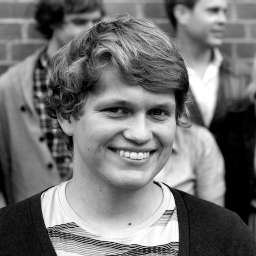For a classical music festival named after the Baltic Sea, it is befitting that there is a distinctly aquatic slant to its programming. Following in the biblical waters of Saturday’s opening Noye’s Fludde, came a concert performance of Wagner’s Das Rheingold, performed by Esa-Pekka Salonen and the Finnish National Opera. Despite lacking the sets and direction of a full production, it still came together as a mostly dramatic, cohesive, astonishingly well-played and -sung performance.
Rheingold is the first opera of Wagner’s Der Ring des Nibelungen, telling the story of how the titular ring was forged by the dwarf Alberich, and giving a taste of the destruction and tragedy to come later in the cycle. With a central role played by the River Rhine, it seemed an obvious addition to a water-heavy festival programme.
Given the constraints of a Wagner opera performed in concert, with all that entails of orchestral excesses, there was not much room to spare on the stage of the Berwald Hall. Still, with no other visual and dramatic aids than subtle lighting changes, conductor, orchestra and singers all managed to work together to tell the same story. It probably helped that this exact cast, orchestra and conductor are all part of a forthcoming production of Rheingold in Helsinki. This was no ordinary concert performance, but instead one that clearly had been meticulously rehearsed over a long period of time.
Above all, this was a Rheingold which emphasised the lyrical side of the score, etching out broad melodic lines to propel the opera forward. It might of course be the lack of any kind of scenic aids, but this was storytelling through music, letting the ever more tangled Leitmotifs lead the way through the story. However tempting it might be to wallow in the admittedly glorious sounds coming from the singers and the orchestra, Salonen kept urging the drama forward. There were, admittedly, longueurs – the endless negotiations of Scene 2 cannot have tried my patience alone – but those were equally the fault of the composer.
To begin with, I had a feeling that Salonen was holding the orchestra back a little too much – the last few bars of the prelude lacked that last little bit of aquatic exuberance – although they made up for it by really letting loose in the latter half of the opera. By the end of the evening, the players of the orchestra of the Finnish National Opera were practically glowing, flooding the hall with waves of sound. One rather disappointing exception to this was the descent into Nibelheim at the beginning of Scene 3, where pre-recorded anvils were played through loudspeakers. It’s fair enough that one does not have the score-prescribed 18 anvils to hand – certainly for a concert performance – but it would have been nice with something a little less tinkly.
Casting opera is no easy task, certainly those by Wagner, and yet I was astonished by the level of the all-Finnish cast assembled. Good Wagnerian singers do not grow on trees. Except, it would seem, in Finland. Marjukka Tepponen, Mari Palo and Jeni Packalén were absolutely stunning as the Rhinemaidens, singing with wonderful clarity and blending extremely well when singing together. They were also excellent foils for Jukka Rasilainen’s surprisingly lyrical Alberich. In a role that is often more shouted than sung, he emphasised the melodic qualities of the dwarf’s music, especially in the first scene, and sang with an unsettling warmth. It made his anger and hurt later in the opera all the more terrifying, and I have rarely heard such a blood-curdling curse.
Tommi Hakala’s Wotan was somewhat on the dry side, albeit not without a certain hauteur. Once he had warmed up properly – from Scene 3 onwards – he sang with great nobility, letting the immoral and more questionable sides of the head god shine through more and more. As Wotan’s wife, Fricka, Lilli Paasikivi's portrayal was rather more subdued than those of her colleagues, and although I wished for some more specificity, her singing was extremely accomplished.
Opera in concert can often be an enjoyable experience, certainly from a musical point of view. It is rare, however, that they become cohesive, dramatic performances in their own right. With such a high level of singing and orchestral playing, this Rheingold was a rare treat, and the upcoming Helsinki production should be quite something.
Aksel's press trip to Stockholm was funded by Swedish Radio




